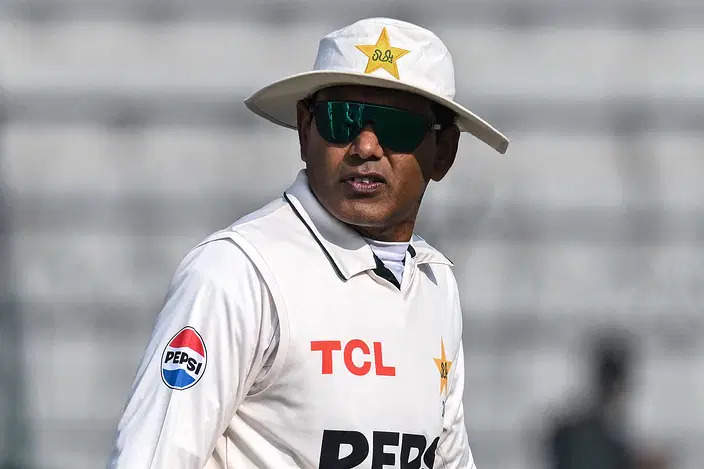Babar Azam crouched down, holding the catch, staying still. Alone. Meanwhile, the wicketkeeper and other nearby fielders dashed toward the bowler’s end to celebrate with Noman Ali. Overwhelmed with joy, Noman punched the air after a quick celebratory sprint. It was a moment of history for Pakistan cricket—something that had never happened before.
Noman etched his name into the record books by becoming the first Pakistani spinner to achieve a hat-trick in Test cricket. The historic moment came during the second Test between Pakistan and West Indies in Multan, on the morning of the first day.
Noman’s hat-trick began with Justin Greaves caught by Babar, followed by Tevin Imlach trapped LBW, and finally, Kevin Sinclair falling to a catch at short forward by Babar. This marked the sixth hat-trick by a Pakistani bowler in Tests, but all five previous ones were claimed by pacers. In Pakistan’s pace-dominated cricketing history, this was only the third time a spinner managed a hat-trick on home soil.
The last two instances were by visiting spinners—New Zealand’s off-spinner Peter Petherick against Javed Miandad’s team in Lahore in 1976, and Bangladesh’s leg-spinner Alok Kapali in Peshawar in 2003. The last Test hat-trick in Pakistan came in 2020, when Naseem Shah dismissed three Bangladesh batters in consecutive deliveries at Rawalpindi, just before the pandemic.
Among Pakistani pacers, Wasim Akram leads with two Test hat-tricks in 1999, both against Sri Lanka, one in Lahore and another in Dhaka during the Asian Test Championship. The other two pacers with hat-tricks are Abdur Razzaq (2000) and Mohammad Sami (2002), also against Sri Lanka.
On this remarkable day, 38-year-old Noman Ali’s hat-trick left the West Indies batting lineup in shambles. From 4 for 38, they were reduced to 7 for 38 in no time. By the time this report was written, West Indies had crawled to 68 for 8, unable to find any stability at the crease.






